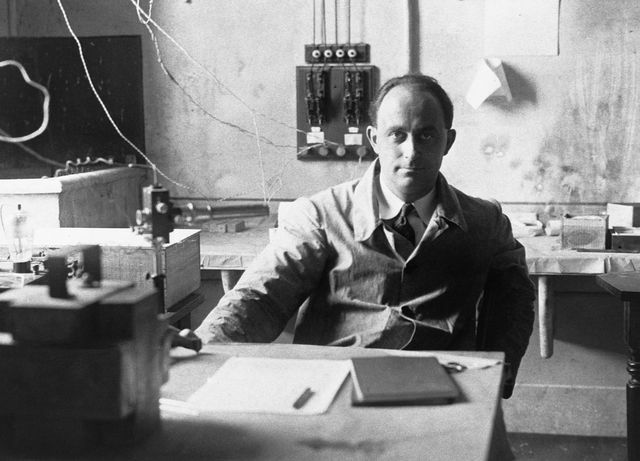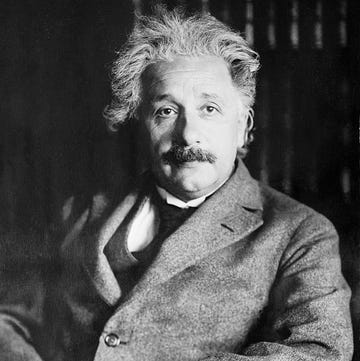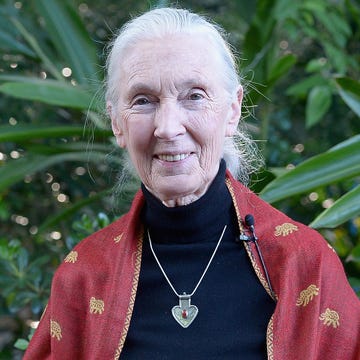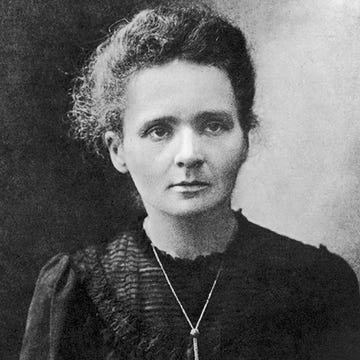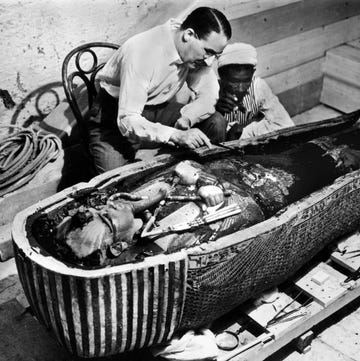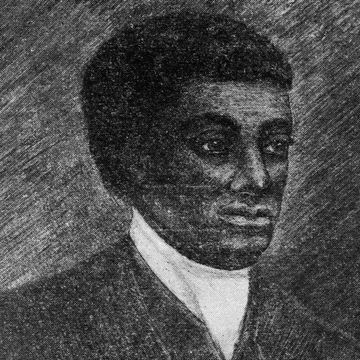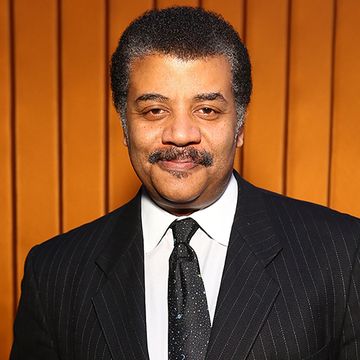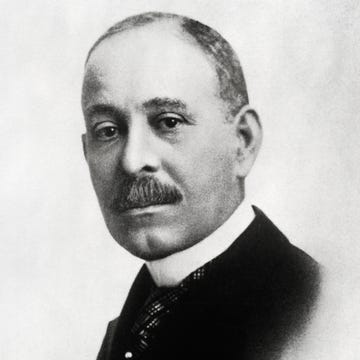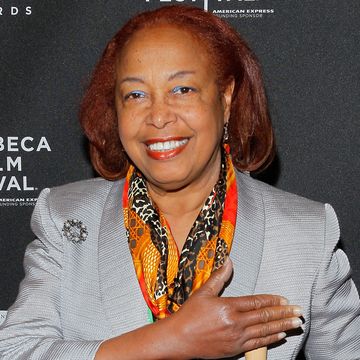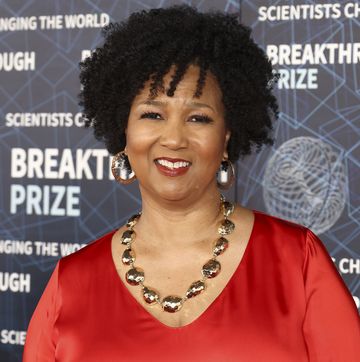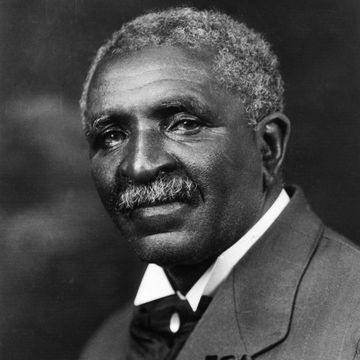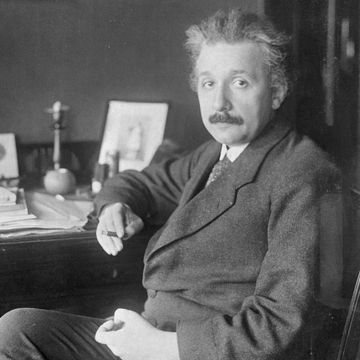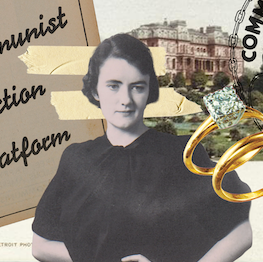(1901-1954)
Who Was Enrico Fermi?
Enrico Fermi's early research was in general relativity and quantum mechanics, but he soon focused on the newer field of nuclear physics. He won the Nobel Prize in 1938 for his work in radioactivity, allowing him to escape fascist Italy and settle in the United States. He then built the first nuclear reactor (Chicago Pile-1) and worked on the Manhattan Project. Fermi died in Chicago in 1954. Element 100, fermium, is named in his honor.
Early Life
Enrico Fermi was born in Rome, Italy, on September 29, 1901, the third child of Alberto and Ida de Gattis Fermi. Ida was a remarkable woman, trained as a teacher, highly intelligent and a major influence on her children's education.
Fermi's intense interest in physics was said to be the result of a family tragedy. When Enrico was 14, his beloved older brother, Giulio, died suddenly. Fermi was devastated. To console him, his parents encouraged his studies. He came across a couple of physics books written a half century earlier, and was totally enthralled. During his teens, he and friends conducted physics experiments for fun, including testing the density of Rome's water supply.
In 1918, Fermi won a scholarship to the prestigious Scuola Normale Superiore University in Pisa, Italy. His entry essay was so impressive that Fermi was quickly elevated to the doctoral program, and he graduated with honors in 1922. In 1923, he won a Rockefeller Fellowship and spent several months with renowned physicist professor Max Born in Gottingen, Germany.
Early Career in Physics
Soon, Fermi's physics career and personal life flourished. In 1928, he married Laura Capon, the daughter of a respected Jewish family in Rome. They had one son, Giulio, and a daughter named Nella. Professionally, Fermi was elected professor of theoretical physics at the University of Rome.
In 1934, Fermi began his most important work with the atom, discovering that nuclear transformation could occur in nearly every element. One of the elements' atoms he split was uranium. This work led to the discovery of slowing down neutrons, which led to nuclear fission and the production of new elements beyond the traditional Periodic Table.
In 1938, Fermi was awarded the Nobel Prize in Physics "for his work with artificial radioactivity produced by neutrons, and for nuclear reactions brought about by slow neutrons." The honor was a life-saver for the Fermi family. Fascist Italy had just instituted anti-Jewish laws. The award ceremony in Stockholm, Sweden, gave the family the opportunity to travel out of Italy and escape to America.
Manhattan Project and Atomic Bomb
Situated safely in the United States, in 1939, Fermi was appointed professor of physics at New York's Columbia University. While there, Fermi discovered that if uranium neutrons were emitted into fissioning uranium, they could split other uranium atoms, setting off a chain reaction that would release enormous amounts of energy. His experiments led to the first controlled nuclear chain reaction in Chicago, on December 2, 1942, under Chicago's athletic stadium.
Subsequently, during World War II, Fermi became one of the principal leaders on the Manhattan Project, which focused on the development of the atomic bomb. To further his commitment to his new country, Fermi and his wife became American citizens in 1944.
After the war, Fermi was appointed to the General Advisory Committee for the Atomic Energy Commission. In October 1949, the commission met to discuss the development of the hydrogen bomb. Fermi was appalled at the prospect, however, and later co-authored an addendum to the committee's report condemning the H-bomb in the harshest language. When President Harry S. Truman ordered the development of the bomb—ignoring Fermi's and others' warnings—Fermi returned to Los Alamos, New Mexico, to help with the calculations, hoping to prove that making a superbomb wasn't possible.
Final Years and Death
Fermi continued his work at the Institute for Nuclear Studies at the University of Chicago, where he turned his attention to high-energy physics and led investigations into the origin of cosmic rays and theories on the fantastic energies present in cosmic ray particles.
By 1954, Fermi was diagnosed with incurable stomach cancer, and spent the remaining months of his life in Chicago, undergoing various medical procedures. He died in his sleep on November 28, 1954, at his home in Chicago, Illinois.
QUICK FACTS
- Name: Enrico Fermi
- Birth Year: 1901
- Birth date: September 29, 1901
- Birth City: Rome
- Birth Country: Italy
- Gender: Male
- Best Known For: Physicist Enrico Fermi built the prototype of a nuclear reactor and worked on the Manhattan Project to develop the first atomic bomb.
- Industries
- Science and Medicine
- Astrological Sign: Libra
- Schools
- Scuola Normale Superiore University
- Nacionalities
- Italian
- Cultural Associations
- Italian American
- Death Year: 1954
- Death date: November 28, 1954
- Death State: Illinois
- Death City: Chicago
- Death Country: United States
Fact Check
We strive for accuracy and fairness.If you see something that doesn't look right,contact us!
CITATION INFORMATION
- Article Title: Enrico Fermi Biography
- Author: Biography.com Editors
- Website Name: The Biography.com website
- Url: https://www.biography.com/scientists/enrico-fermi
- Access Date:
- Publisher: A&E; Television Networks
- Last Updated: May 21, 2021
- Original Published Date: April 2, 2014
QUOTES
- Ignorance is never better than knowledge.
- Before I came here, I was confused about this subject. Having listened to your lecture, I am still confused. But on a higher level.
- If I could remember the names of all these particles, I'd be a botanist.
